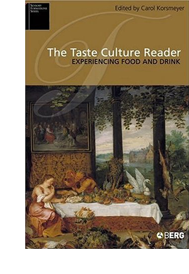
In 2004, Dutch restaurant owner and researcher Peter Klosse wrote an interesting thesis, entitled “The Concept of Flavor Styles to Classify Flavors” at the University of Maastricht (NL).
In this thesis, he made a stronge case for a distinction between taste and flavor. His research showed that the taste and richness of flavor are the basis for a classification of flavors.
“Before we can objectively discuss taste, we first need to distinguish between taste and flavor. Taste refers to the human act of tasting. It is an intricate experience which involves all the senses. Flavor, however, refers to products. Food and drink have flavors. Making this distinction is important because this allows us to classify taste as subjective: whether you like the taste of a product is similar to whether you like the color red. Flavor then is an objective notion, making classification and assessment possible.”, wrote Peter Klosse in this column.
In 1991, Peter Klosse founded the Academy for Gastronomy which is a training institute for food professionals, chefs and sommeliers in The Netherlands.

